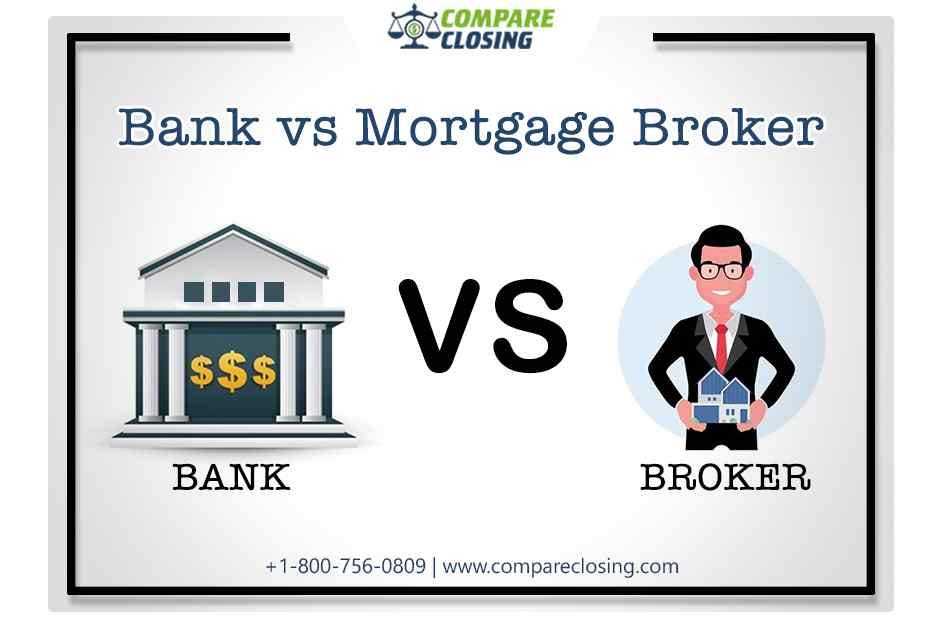
Bank vs Mortgage Broker
Let us understand some pros and cons of a bank vs mortgage broker in Texas while you plan to refinance your mortgage
Mortgage Broker in Texas
A mortgage broker in Texas is a licensed intermediate person between the applicant/borrower and the lender/bank. Usually, a mortgage broker firm is associated with multiple lenders or banks.
When you approach a mortgage broker firm for your refinance or property purchase, they help you find the appropriate lender from their group of associations, giving you a variety of options to choose from.
Let us understand some pros and cons of getting your mortgage refinanced through them.
Pros of Broker:
- The most significant benefit of using a mortgage broker in Texas for your loan is the wide variety of choices you could get for your mortgage. They have access to several loan products and lenders, which could help you to get the specific loan that matches your requirements.
- A mortgage broker mostly gets paid only after closing the loan. Hence, a broker will always have an intent to provide you with the best service with the fastest turnaround times.
- Working with a mortgage broker in Texas gives you an advantage of availability. Since the mortgage brokers are intended to get the loan closed as soon as possible, they are readily available for their clients.
- Working with a Mortgage broker can get you the lowest interest rates available in the market. A broker has access to a variety of lenders and multiple loan programs, so the possibility of you getting the lowest interest rate is very high.
- Since a mortgage broker works day in and day out with multiple lenders and borrowers, you might be in a position to get the best of advice from him.
Cons of Broker:
- A loan done through a mortgage broker in Texas may end up getting sold to another lender. Usually, mortgage brokers work with wholesale lenders who service the loan for up to one year and sell those to other banks or lenders in the secondary market.
- A mortgage broker is unable to fund a loan. They get you connected to the relevant lender for which they get a certain commission.
- Getting a loan through a mortgage broker might sometimes cost you an additional brokerage fee.
- A broker does not have control over the process of the loan. He would be dependent on the processing of the lender’s underwriters to get through any conditions of the loan.
Mortgage Bank in Texas
A mortgage bank is a licensed institute that originates, processes, funds, and provides service of mortgage loans directly to the consumers. A bank would finance a loan with its own capital.
A mortgage bank can vary from nationwide to limited to certain states depending on their kind of license. Let us look at some pros and cons of getting a mortgage done through a bank.
Pros of Bank:
- A mortgage bank funds its own loans. A bank will have a loan officer who will assist you through the process of the loan.
- If you use a bank for your mortgage refinance or property purchase, the fees in question could be less, and you might save some money.
- A loan officer from a bank would have complete control over the process hence fewer dependencies.
- The loan through the bank will always be serviced by the same bank till the time the borrower decides to refinance and go with a different bank or a mortgage broker in Texas.
- Having a loan through a bank might give you access to their other perks. You could get offers on credit cards, debit cards, savings, or checking accounts.
Cons of Bank:
- A mortgage bank may have limited loan programs because of which you might have to settle for one of the programs they offer.
- The interest rates could be a little higher compared to what a mortgage broker can offer.
- The closing time could be higher compared to a mortgage broker. The banks usually work for business hours and hence may take a longer time to close the loan.
- Some banks may need you to be their customers before they can help you with the loan and might cross-sell other financial products.
- A bank may have stringent qualifying criteria compared to a mortgage broker.
Conclusion
Whether you refinance or purchase your mortgage from a bank or a mortgage broker, it is always suggested you compare it with at least three institutions before you finalize your mortgage and the financial institution.
It would give you a fair chance to save as much money as you could.
https://www.compareclosing.com/blog/bank-vs-mortgage-broker-in-texas/
Comments
Post a Comment